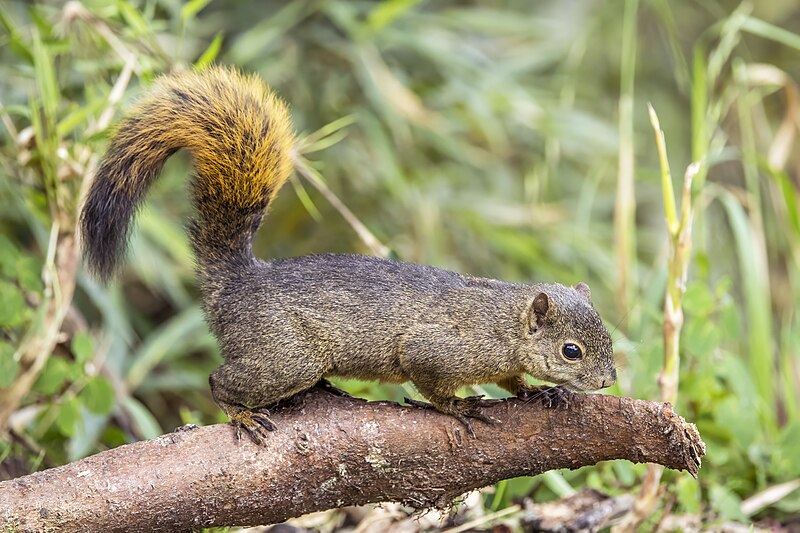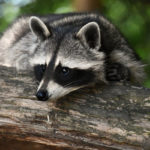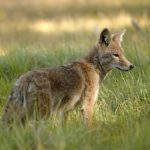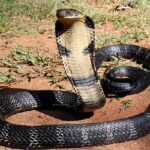Yes, squirrels are omnivores, meaning they eat both plant and animal matter. But let’s dive into the details of their diverse diet.
Key Takeaways
- Squirrels eat a mix of plants and animals.
- Their diet includes nuts, seeds, fruits, fungi, insects, and even small animals.
- Understanding their diet helps in coexisting with them and making informed decisions about feeding them.
Ever wondered what squirrels munch on when they’re not busy scampering around your backyard? If you’ve seen these furry acrobats nibbling away at everything from nuts to bird eggs, you might be curious about their diet. Are they picky eaters, or do they devour whatever they can get their paws on?
Well, let’s settle the debate once and for all: yes, squirrels are omnivores! That means they enjoy a smorgasbord of both plant and animal matter. But what exactly does their menu look like, and why should you care? Whether you’re a nature enthusiast, a curious homeowner, or just someone who enjoys watching these critters in action, understanding the diverse diet of squirrels can shed light on their fascinating behavior and how they fit into our ecosystem.
At AAAC Wildlife Removal, we’ve seen it all when it comes to these bushy-tailed bandits. In this article, we’ll explore the ins and outs of what squirrels eat, how their dietary habits change with the seasons, and the impact this has on their daily lives. So grab a snack (preferably not a squirrel’s favorite) and let’s dive into the culinary world of these delightful and sometimes surprising omnivores!
The Plant-Based Diet of Squirrels

Squirrels are well-known for their love of plant-based foods, and for good reason. These energetic foragers spend a significant portion of their day searching for and consuming various plant materials. Let’s take a closer look at some of their favorites:
Nuts and Seeds
Nuts are perhaps the most iconic food associated with squirrels. Acorns, walnuts, pecans, and hazelnuts are among their top choices. These nutrient-rich snacks provide essential fats and proteins, making them perfect for energy storage, especially for the colder months
Fruits and Berries
Squirrels also have a sweet tooth and often feast on fruits and berries. Apples, grapes, and berries like strawberries, raspberries, and blackberries are all on the menu. These juicy treats not only offer a burst of energy but also hydration, which is crucial during hot summer days.
Fungi and Mushrooms
Squirrels are known to consume various types of fungi and mushrooms. This might come as a surprise, but fungi provide important nutrients that complement their diet. Plus, mushrooms can be a reliable food source during periods when other foods are scarce.
Their ability to adapt to available plant foods demonstrates their omnivorous flexibility, ensuring they get a balanced diet no matter the season.
The Animal-Based Diet of Squirrels
While squirrels are often seen munching on nuts and fruits, they also have a surprising side to their diet that includes animal matter. This aspect of their omnivorous nature helps them meet their nutritional needs more comprehensively.
Insects and Larvae
Insects are a significant part of a squirrel’s diet, especially in the spring and summer. Beetles, caterpillars, and larvae provide a protein boost, which is essential for growth and repair. This high-protein diet is particularly beneficial for nursing mothers and young squirrels.
Bird Eggs
Squirrels are known to raid bird nests for eggs. These protein-packed snacks are a valuable food source, especially when plant-based foods are less abundant. It might seem ruthless, but in the wild, survival often requires opportunistic feeding habits.
Small Animals and Carrion
Though less common, squirrels have been observed eating small animals like young birds and even small rodents. Additionally, they might consume carrion if they come across it. This behavior underscores their adaptability and resourcefulness in various environments.
Understanding these dietary habits not only provides insight into their survival strategies but also helps explain some of the more unexpected behaviors you might observe in your backyard.
Seasonal Changes in Diet
Squirrels are masterful at adapting their diets to the changing seasons, ensuring they always have access to the nutrients they need. In spring and summer, when food is abundant, squirrels feast on a variety of fresh plant matter. This includes tender buds, leaves, flowers, and a plethora of fruits and berries.
These foods provide hydration and energy, essential for their high activity levels. As autumn approaches, squirrels shift their focus to gathering and storing nuts and seeds, which are rich in fats and proteins. This behavior, known as caching, involves burying nuts in various locations to retrieve during the winter months.
Winter presents a stark challenge as food sources become scarce. During this time, squirrels rely heavily on their cached supplies and may consume tree bark, fungi, and even the occasional insect or bird egg to survive. This seasonal dietary flexibility showcases their remarkable adaptability and survival instincts, allowing them to thrive in diverse environments.
The Impact of Diet on Squirrel Behavior
The diet of squirrels significantly influences their behavior and interactions within their habitats. Their foraging activities are driven by the availability of food, leading them to be constantly on the move, searching for their next meal. This quest for sustenance often makes them highly territorial, especially when it comes to defending valuable food sources like nut trees or bird feeders.
Squirrels are known for their strategic food storage habits, burying nuts and seeds in scattered locations to ensure they have enough reserves to last through the winter. This behavior not only helps them survive during harsh conditions but also inadvertently contributes to forest regeneration, as forgotten caches can sprout into new trees.
Additionally, their omnivorous diet allows them to exploit various food sources, from plants to small animals, which enhances their adaptability in different environments. Understanding these dietary-driven behaviors can help homeowners and nature enthusiasts coexist more harmoniously with these resourceful creatures, whether it’s managing bird feeders or appreciating their role in the ecosystem.
Should You Feed Squirrels?
Feeding squirrels can be a delightful pastime, bringing these energetic critters up close for observation. However, it’s important to consider the pros and cons before making it a regular activity. On the positive side, feeding squirrels can supplement their diet, especially during harsh weather or food shortages.
It also offers a unique opportunity to observe their behaviors and interactions up close. However, there are downsides to consider. Feeding squirrels can make them overly dependent on human-provided food, potentially disrupting their natural foraging behaviors. It can also attract other unwanted wildlife or pests to your property.
If you do decide to feed squirrels, it’s best to offer foods that align with their natural diet. Nuts like almonds, walnuts, and hazelnuts are excellent choices. Fruits such as apples, grapes, and berries are also good options. Avoid giving them processed foods, sugary snacks, or anything with artificial additives. By feeding squirrels responsibly, you can enjoy their presence while ensuring their health and well-being.
Fun Facts About Squirrel Eating Habits
Squirrels have a plethora of quirky and interesting eating habits that make them fascinating creatures to watch. For instance, their famous nut-burying behavior is not just for immediate consumption but is a strategic way to store food for winter.
They possess an incredible spatial memory, allowing them to remember the locations of thousands of buried nuts. Squirrels also have a unique way of handling their food; they often rotate nuts between their paws, inspecting them closely before deciding to eat or cache them. Another intriguing fact is that squirrels have been observed “deceptive caching” – pretending to bury food to throw off potential thieves watching them.
This clever tactic helps protect their valuable food supplies from other hungry animals. Additionally, squirrels are known to chew on tree bark and branches, not only to access the nutritious inner layers but also to help keep their ever-growing teeth in check. These behaviors highlight the resourcefulness and adaptability of squirrels, making them one of the most intriguing animals to observe in the wild.
Conclusion
In conclusion, squirrels are indeed omnivores, showcasing a fascinating and diverse diet that includes both plant and animal matter. Their dietary habits, from munching on nuts and berries to occasionally snacking on insects and bird eggs, highlight their adaptability and resourcefulness. Understanding what squirrels eat not only gives us a glimpse into their survival strategies but also helps us appreciate their role in our ecosystems.
At AAAC Wildlife Removal, we’ve seen firsthand how these clever creatures navigate their environments, driven by their need to find food. Whether you’re a homeowner looking to coexist peacefully with your backyard visitors or a nature enthusiast eager to learn more, knowing about the omnivorous nature of squirrels can deepen your appreciation for these lively animals. So next time you spot a squirrel darting through the trees or burying a nut, you’ll have a better understanding of the complex and varied diet that fuels their energetic lives.














